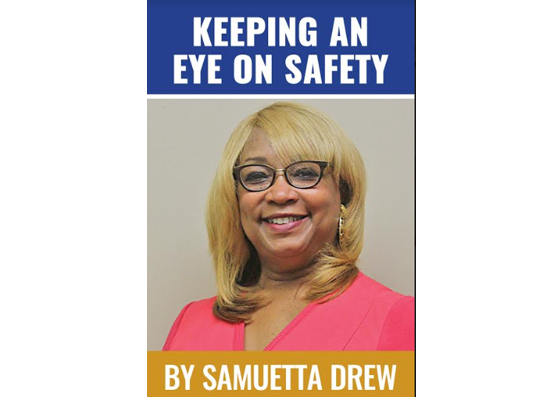By Samuetta Hill Drew
Keeping our children safe is a key and vital role for parents. An essential part of this role is instilling in our children, regardless of age, the necessary tools required to be successful in life. Among those tools is self-protection.
Any good parent/guardian wants to protect their child(ren) at all times, but realistically we cannot be with them 24/7. Therefore, teaching your child(ren) how to protect themselves when alone and not with you is important.
The “Buddy System” is a good, safe and effective tool regardless of your child’s age. Teach them to use it for their and their friend’s safety. Two individuals together are less vulnerable than one alone. As they walk home from school or work make sure they have a friend to walk with. As a child my parents would tell my friend and I to “stay together.”
This is a good safety tool for someone that is entering college to practice as well. Walking alone on campus, especially at night, puts them more at risk than walking with someone.
Secondly, it is very important for you to empower your child to trust their gut. This is a key element of their safety. So often we teach children, especially girls, to be polite at all times. This means they may be polite to someone despite what their body and instincts are telling them about that person.
Give them the freedom to say “no” when they feel uncomfortable. This can start as easy as not requiring them to give someone a hug goodbye. If that action makes them uncomfortable give them permission to verbally say goodbye and refuse the hug. A hug should not be a requirement.
Next, it is important as a parent you know your child(ren)’s friends. Invest your time and energy into their lives and pay attention to who they are hanging out with. Simultaneously, teach your child the difference between what a real friend will ask of them and what someone who is acting like a friend, but does not have their best interest in mind, may ask. This applies to friends in real life as well as online friends. Think about this, a young person rarely knows 5,000 people in real life so why do they have 5,000 Instagram followers? Establish the boundaries around online friends and hold them to it.
Sometimes it is easier for a young person to talk to a trusted adult in their life that is not a parent. Naturally children do not want to disappoint parents and sometime feel more comfortable sharing details of a situation with someone other than a parent. Make sure your child has trusted (key word) adults in their life. It can be a grandparent, aunt, uncle or best friend. Give them the freedom to talk with them.
It is also important that you give your child(ren) the freedom to speak with you about any subject, no matter how uncomfortable it may make you feel. These lines of communication should begin with statements such as “you can talk to me about anything” and mean it. This type of statement should be said when your child is young and repeatedly periodically (not daily or even weekly) throughout their childhood and even longer. It is essential you establish those lines of communication, so they feel at ease talking with you about anything, including sensitive topics, without you becoming preachy or judgmental. This open line of communication enables you to help steer your child in the right direction versus turning to their friends who may offer them misguided information, not intentionally, but because of their own lack of wisdom or knowledge.
Keeping an Eye on Safety on behalf of our loved ones is a full-time commitment but well worth the investment. Next week will be the final segment in this Back-to-School series.




